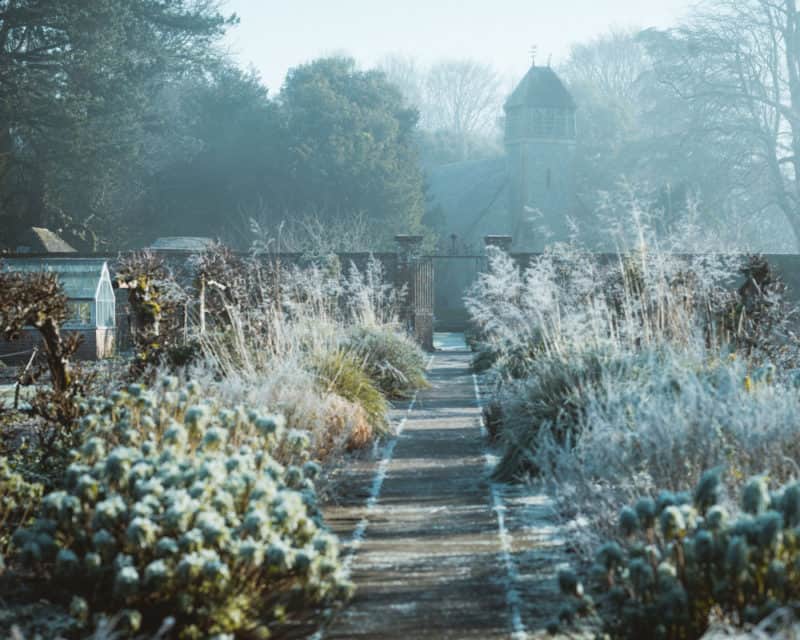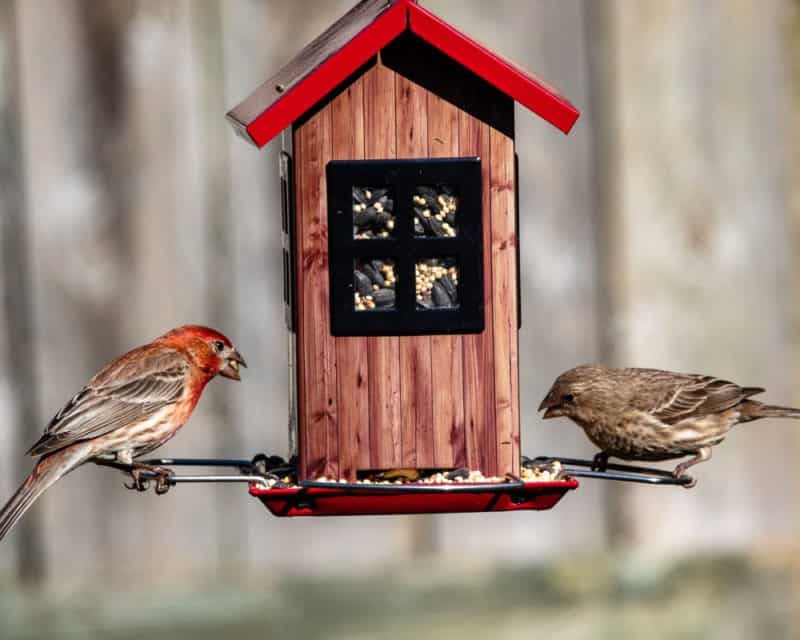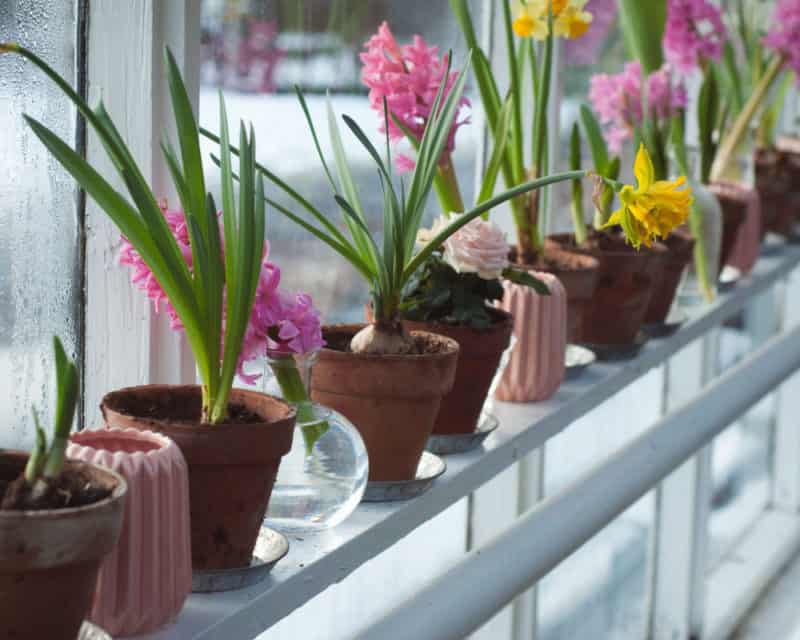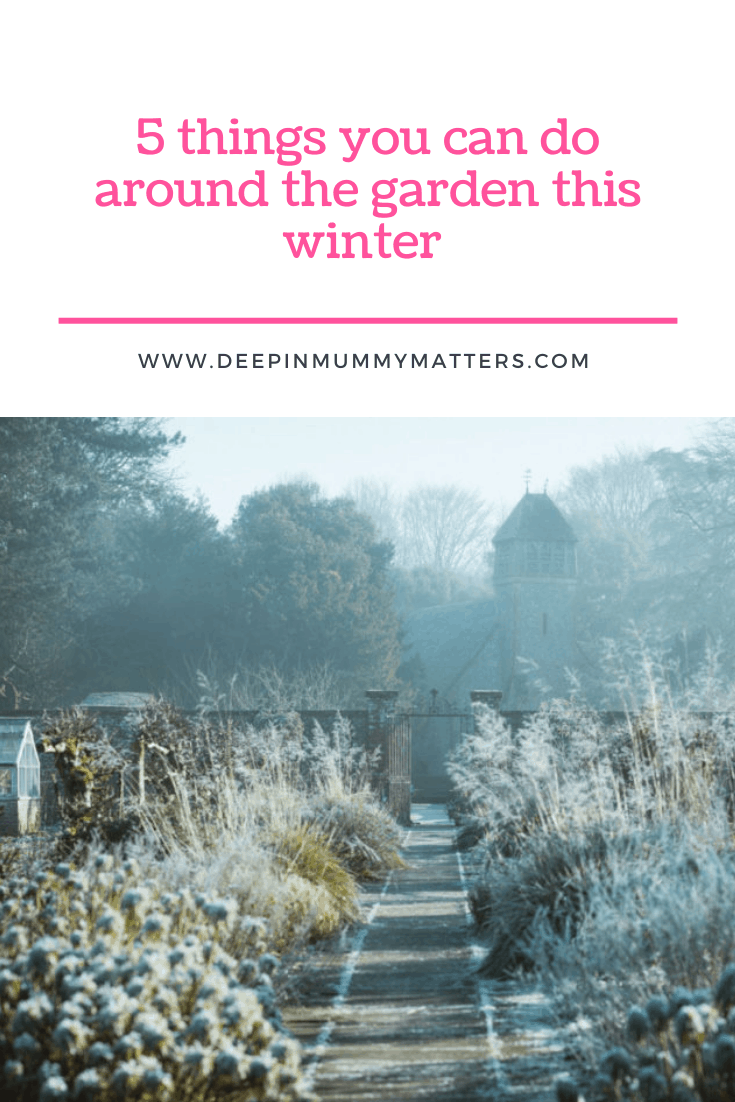It can be challenging to find motivation for garden upkeep during the winter. The flowers of spring and summer are a rapidly fading memory, and the constant rain and chilly weather can make gardening a struggle.

However, there is still a lot to do if you want a beautiful outdoor space next spring. The foundations for a great garden are often laid over the winter, so plenty of jobs need doing even in the dark and bleak months. So, whether you spend the season repairing tools, planting bulbs or caring for garden fauna, here are some jobs you can do around the garden this winter.
Dig Garden Beds
If your garden has clay soil, the winter is the time to be digging beds. You should avoid doing this if the ground is particularly saturated or if the weather has been freezing. Digging up the flower beds now means that the winter frost can break up the soil and improve its structure for the coming year.
You should only need to do this once at the beginning of the winter. However, if your soil is particularly compacted, you might need to dig it up a second time. Additionally, if the ground in your garden is sandy, you should probably avoid doing this altogether until the spring. Otherwise, you risk the beds drying out during the winter months.
Look After the Animals That Call Your Garden Home

While the winter might be a trying time for us, it is nothing compared to what the local animals go through in the harsh months. It is easy to complain about the conditions of a well-heated home while digging into a lavish dinner. The birds and other wildlife in the garden do not have this luxury. For them, the winter is a constant battle for survival as they search for enough food to sustain themselves.
As such, you should take care to place bird feeders around your garden to help your feathered friends in the bleak midwinter. Birds appreciate energy-dense foods like nuts, seeds and fat balls for sustenance during this period. Little Peckers have a great range of food and feeders that you can put out during the winter months.
Also, don’t forget about the hedgehogs that call your garden home. These sweet little creatures are declining in the UK, so we all need to do our bit to help out. All you need to do is leave a few untidy corners in your outdoor space that they can use as a den. If you notice hedgehogs in the garden, avoid disturbing them if at all possible since they are very nervous animals.
Ultimately, these meals can make the difference between life and death for these animals, so do your bit to help the local wildlife. As well as food, make sure you leave out some water for the fauna and check this regularly to ensure it doesn’t freeze over.
Start Composting
Winter is a great time to get a compost heap to fertilise your garden over the next year. Adding compost or rotten manure to your flower beds helps to bring vital nutrients to the soil that will leave you with healthy and happy flowers next spring.
You can put food waste out into the garden during the winter months, and it will rot as time passes. This will release the nutrients from the waste, allowing it to be reabsorbed into the soil when you mix it in. You can either fork the compost into the ground or spread it over the top of the earth if you have raised beds.
The winter is also an excellent opportunity to make leaf mould. By creating wire cages for leaves or storing them in plastic bin liners, you can stop them from blowing away. Add some soil to this to help them break down, and you will be left with an excellent fertiliser for your garden.
Get Some Bulbs In the Ground

Planting bulbs during the winter is a brilliant way of ensuring vibrancy and colour in your garden as soon as the seasons begin to change. You can start planting bulbs in flower beds as early as November to bring your garden to life from January onwards.
It is often best to pick a few different bulb varieties and plant them in clumps to achieve the best effect when the garden begins to bloom. Some good choices for a splash of colour in the dark and cold months include snowdrops, hyacinths, crocuses and many more.
You can also plant other plants during the winter months to help out the wildlife and bring some vibrancy to your garden. This period is the best time to get shrubs, small trees, climbing plants and hedging into your outdoor space. This will help to attract wildlife during the warmer months. For example, you could plant a cotoneaster shrub to provide nectar for bees and butterflies during the summer.
Clean and Maintain Your Tools for the Coming Year
Another way to spend your time in the garden during the off-season is to keep everything tidy and prepared for when you need it again. When your tools sit around unused for an extended period, they could become rusty or damaged, so you must give them a good clean and store them in a secure and dry environment.
Additionally, take the time to sharpen tools like secateurs and tighten handles on your spades. The sharper your tools, the safer you are, and the healthier your plants will be. Cleaner cuts when pruning causes less damage and are less likely to lead to disease. As such, your tools should be sharp and clean for when you next need them.
This is also an excellent opportunity to tidy up the garden shed or greenhouse, giving you one less job to do in the busier months.
Overall, the winter represents a rest period for your garden, where you can plan and prepare for the coming year. Using this time wisely will stand you in the best position possible to achieve your dream garden once spring and summer come back.


